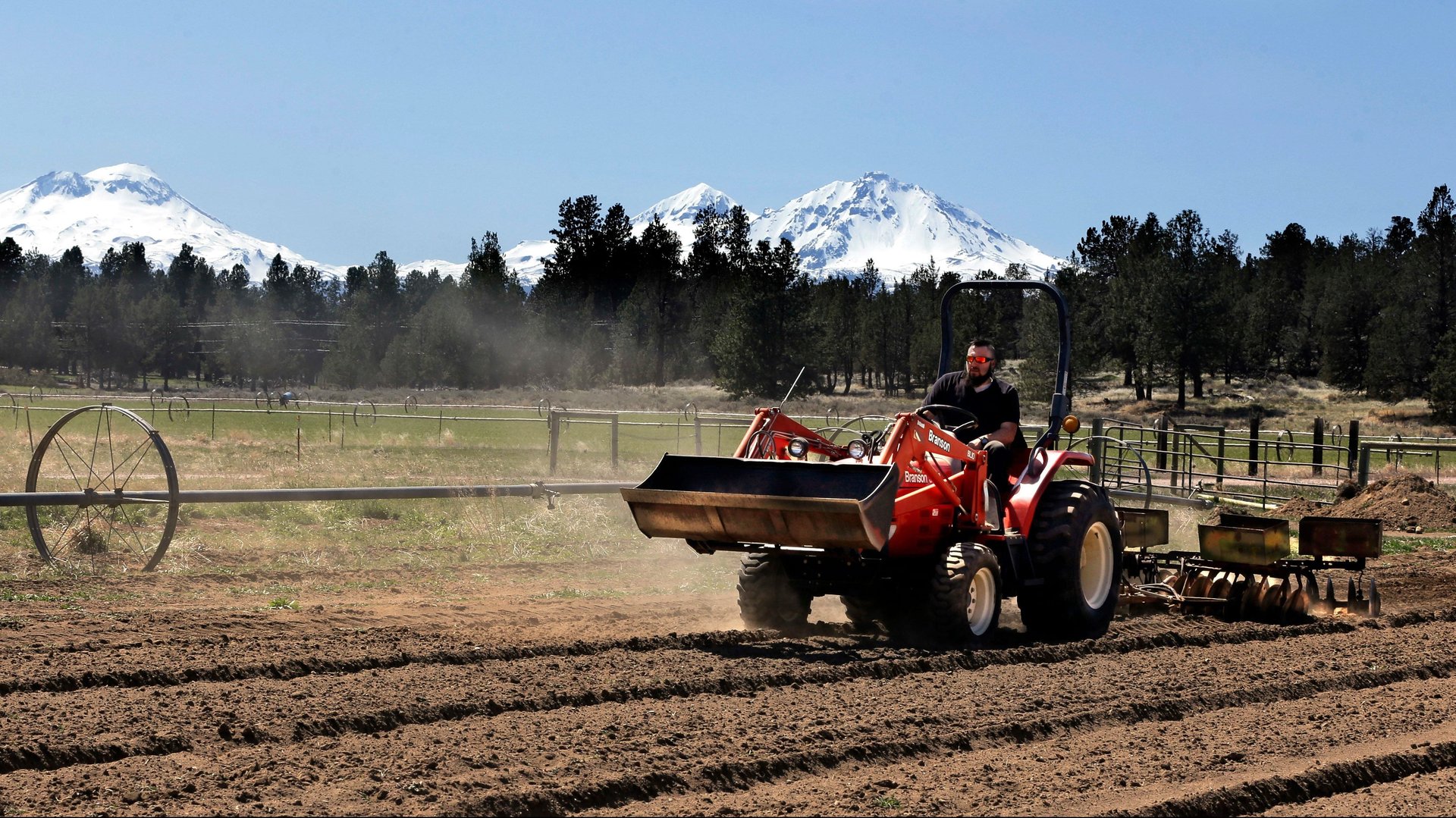Proposed hemp regulations continue the racist legacy of the US war on drugs
Until recently, hemp—the name for a cannabis plant bred to have little to no THC (tetrahydrocannabinol)—has been far less exciting in the popular imagination than its psychotropic sister, marijuana. But CBD (cannabidiol), the naturally occurring chemical compound found in both cannabis and hemp, has caught fire (so to speak) in the wellness world.


Until recently, hemp—the name for a cannabis plant bred to have little to no THC (tetrahydrocannabinol)—has been far less exciting in the popular imagination than its psychotropic sister, marijuana. But CBD (cannabidiol), the naturally occurring chemical compound found in both cannabis and hemp, has caught fire (so to speak) in the wellness world.
This has made hemp a hot commodity. Industry analysts at the Brightfield Group estimate that the US market for hemp-derived CBD in the form of tinctures, capsules, vaporizers, pet treats, and more will be worth $591 million in 2018.
This success is despite legal ambiguity surrounding CBD, which is regulated by various agencies depending on the presence (or absence) of THC; which product it is in; and its location in the country. Although the 2014 Farm Bill defined “industrial hemp” as plants and products derived from cannabis plants with less than 0.3% THC, there was lingering uncertainty about whether CBD extracts were still included in the US Drug Enforcement Administration’s definition of “marihuana extract.”
Now, the booming hemp industry is expected to get a boost from the 2018 Farm Bill, which will likely clear a legal path for hemp-derived CBD. Senate majority leader Mitch McConnell sponsored and secured an amendment to the senate’s current version of the Farm Bill that would remove hemp from the DEA’s definition of marijuana.
“If there’s a Farm Bill, [the hemp provision] will be in there,” McConnell told reporters earlier this month. “I guarantee you that.”
But advocates for racial justice say some provisions of the bill will reinforce the problematic legacy of the war on drugs, which saw the criminal justice system disproportionately target and punish people of color. The current version of the bill bans people with drug-related felony convictions on their records from participating in the hemp industry—for life.*
“It’s a broad prohibition,” says Daniel Shortt, an attorney who focuses on cannabis law in Seattle, Washington. “Any felony related to a controlled substance will disqualify a ton of people from participating in this industry.” Some of those people, of course, have convictions for growing or selling marijuana.
As well as continuing to punish people for actions that are no longer considered crimes in much of the country, this provision eliminates people with relevant work experience from the industry, as James Higdon pointed out in Politico Magazine: “For many men in rural Kentucky, where illegal marijuana was a staple crop, the lifetime ban included in the proposed farm bill means they’re shut out of a growing industry in which they have have actual job skills.”
Politicians are beginning to speak up about the injustice of lingering cannabis convictions hampering peoples’ abilities to work, secure loans, or vote, while people like the former speaker of the house, John Boehner, stand to get rich from multibillion-dollar cannabis operations such as Acreage Holdings. Cities such as Los Angeles and Oakland have social equity programs that are designed to give those who suffered under the war on drugs a leg up in the legal industry. The felon ban in the Farm Bill appears designed to do just the opposite.
Some stakeholders have said that they disagree with the felon ban, but are willing to swallow it if the Farm Bill. Kentucky congressman James Comer, for example, told Politico he doesn’t endorse the ban, which “really goes against the direction our country is headed with respect to criminal justice reform related to minor drug offenses.” But he said that wouldn’t keep him from voting for the Farm Bill.
Smoke Wallin, the president of Vertical—a business which has cannabis grows in Arizona, California, and Ohio, and just harvested its first 100 acres of hemp in Kentucky—agreed. “I think it’s an unnecessary provision,” he told me. “But it’s not a deal breaker.”
*Update (Dec. 15, 2018): The language in the final 2018 Farm Bill (pdf) bans people for 10 years from the date of a drug-related conviction, not for life.